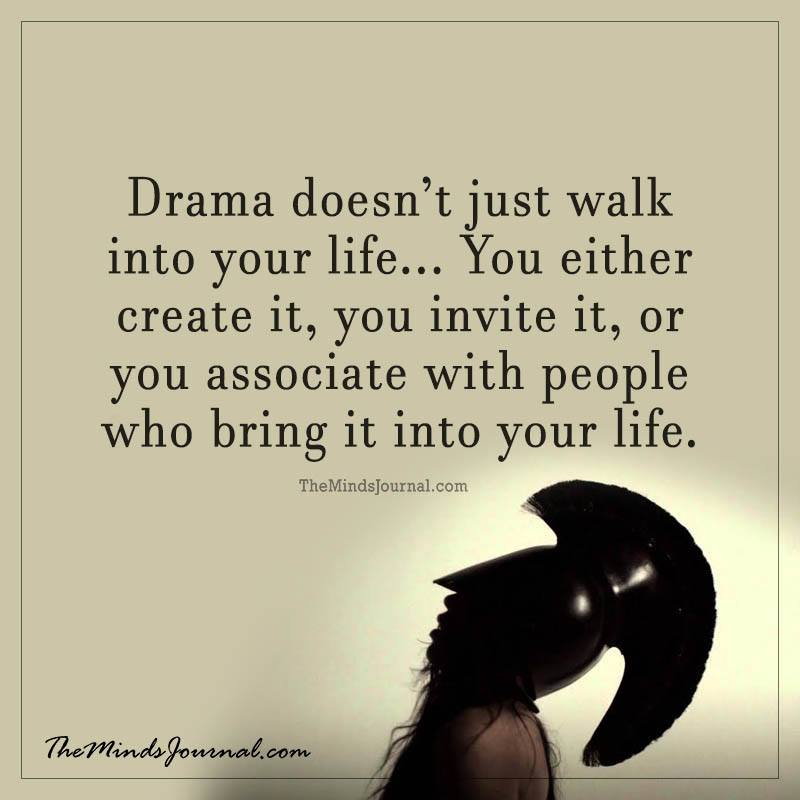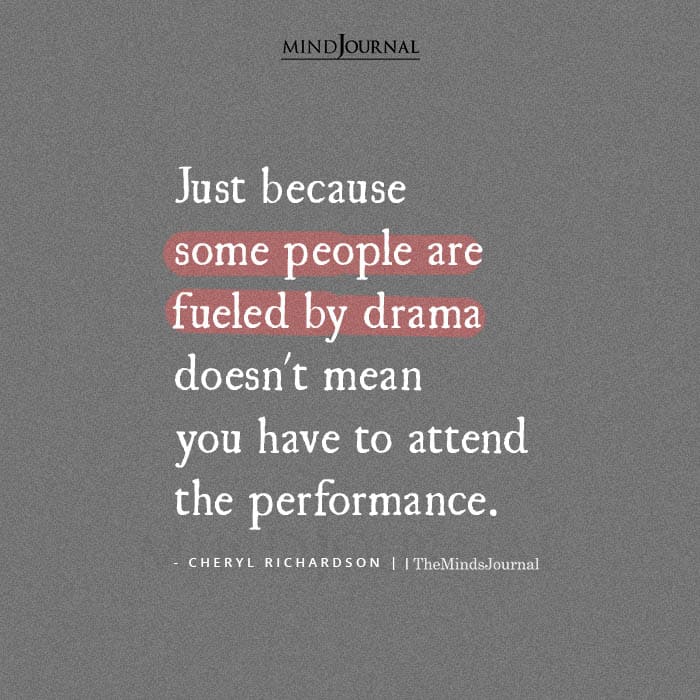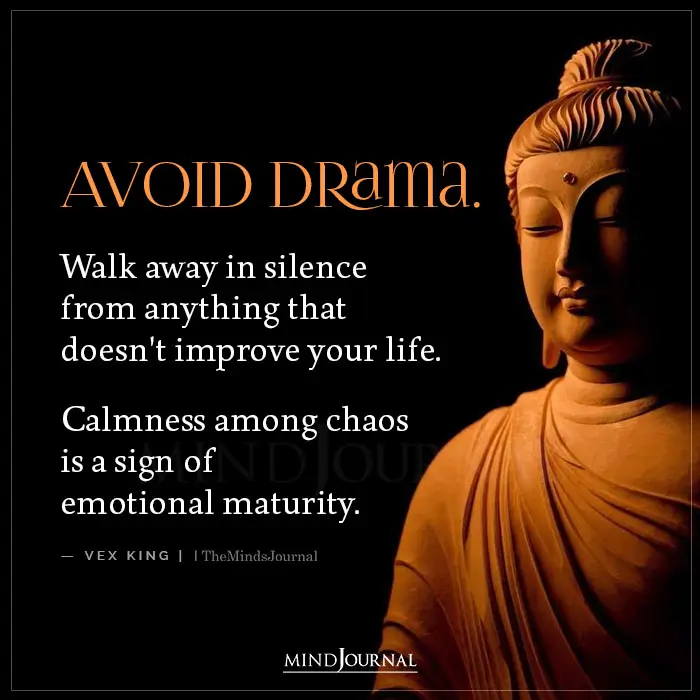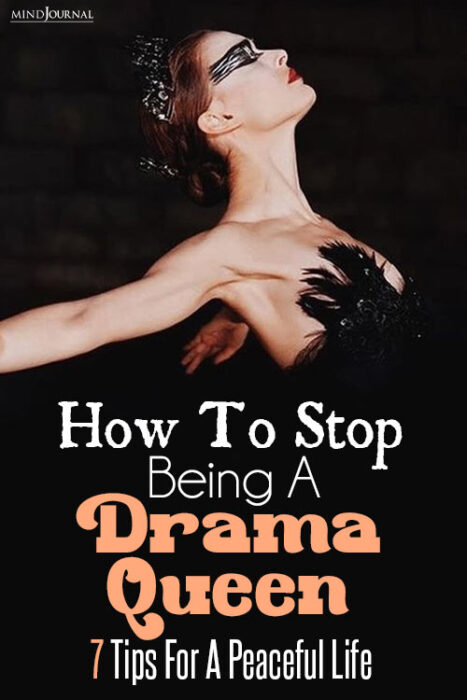Are you addicted to drama in relationships and life? Do you find yourself creating drama unintentionally? Do people say you are overly dramatic? Then it might be time that you learn how to stop being dramatic.
Many people struggle with dramatic tendencies, but the good news is that you have the power to break free from this cycle. Today, we will explore the signs of a dramatic person, the potential reasons behind this behavior, and most importantly, practical steps on how to stop being dramatic and cultivate a more peaceful and fulfilling life.
Are You Addicted to Drama?

Do you find yourself constantly drawn to conflict, chaos, or gossip? Do you thrive on emotional roller coasters? You may be addicted to drama. It’s essential to understand that the addiction to drama is not always a conscious choice, but rather a pattern that develops over time.
This pattern of seeking out or creating drama can be detrimental to your mental and emotional well-being, as well as your relationships. Recognizing and addressing this addiction is crucial for achieving inner peace and healthy connections with others.
Related: Got Family Drama? Here’s How To Survive Family Gatherings This Thanksgiving
Recognizing Dramatic Patterns: Signs of a Dramatic Person
To overcome dramatic tendencies, it’s crucial to recognize the signs and patterns within yourself. Here are some common signs of a dramatic person:
1. Magnifying Minor Issues
Dramatic individuals tend to blow small problems out of proportion, making them appear larger and more significant than they actually are. They often focus on the negatives and overlook the positive aspects.
2. Seeking Validation
Constantly seeking validation from others is a sign of a dramatic person. This can manifest as exaggeration, overreacting, or creating unnecessary conflicts to keep the focus on yourself.
They rely on external validation to feel good about themselves and often go to great lengths to gain attention and sympathy.
3. Impulsive Reactions
Dramatic individuals often react impulsively without considering the consequences. They might say or do things in the heat of the moment, only to regret them later.

4. Difficulty in Letting Go
Do you find it challenging to let go of past conflicts or forgive others? Drama addicts often hold onto grudges and perpetuate conflicts, even when it’s not productive or beneficial.
5. Emotional Roller Coasters
If your emotions fluctuate dramatically and frequently, it may indicate a reliance on drama to feel alive or engaged. Drama addicts often feel empty or bored when life is calm and peaceful.
Related: Behind The Veil: 6 Causes Of Drama At Weddings
How to Stop Being Dramatic: 7 Tips for Cultivating Inner Peace and Emotional Balance
Now that we’ve identified the signs, let’s explore practical steps to stop being dramatic and create a more peaceful and fulfilling life:
1. Self-Reflection and Awareness
The first step in breaking free from drama is self-reflection. Take the time to understand your triggers, patterns, and underlying emotions that lead to dramatic behavior. Recognize that drama is not the solution but a distraction from addressing deeper issues.
2. Emotional Regulation
Learning to regulate your emotions is key to reducing drama in your life. Practice self-soothing techniques like deep breathing, mindfulness, and meditation to create space between your emotions and your reactions. This allows you to respond thoughtfully rather than impulsively.

3. Letting Go of the Need for Control
Dramatic individuals often have an intense need for control over situations and people. Accept that you cannot control everything and everyone around you. Embrace uncertainty and learn to let go of the need for constant validation and attention.
4. Effective Communication
Developing effective communication skills can significantly reduce drama in your relationships. Practice active listening, empathy, and assertiveness. Express your thoughts and feelings calmly and openly, without resorting to exaggeration or manipulation.
5. Focus on Solutions, Not Problems
Instead of dwelling on problems and creating unnecessary drama, shift your focus towards finding solutions. When faced with a challenge, ask yourself, “What can I do to resolve this?” This mindset empowers you to take proactive steps and reduces the need for drama.
6. Surround Yourself with Positive Influences
Evaluate the people you surround yourself with. Choose to spend time with individuals who promote positivity, support personal growth, and encourage constructive communication. Positive influences can help you break free from the drama cycle.
7. Practice Self-Care
Taking care of your physical, mental, and emotional well-being is vital to reducing drama. Prioritize activities that bring you joy and relaxation. Engage in hobbies, exercise regularly, maintain a healthy lifestyle, and seek support from friends, family, or professionals when needed. This is how to stop being dramatic.
Related: 4 Ways To Keep Your Partner Out Of Your Family Drama
Takeaway

Breaking free from drama is a journey that requires self-awareness, self-reflection, and consistent effort. By recognizing the signs of drama addiction, understanding the patterns of dramatic behavior, and implementing practical steps, you can create a more peaceful and fulfilling life.
Remember, you have the power to choose a drama-free existence, where your energy is directed towards personal growth, positive relationships, and inner peace. Embrace this transformation, and let the beauty of a peaceful life unfold before you.
Frequently Asked Questions (FAQs):
Why am I so overdramatic?
Feeling insecure or seeking attention may contribute to being overdramatic. Explore underlying emotions and seek healthy coping strategies.
How do I stop being over dramatic?
Practice self-awareness, emotional regulation, and effective communication to reduce over-dramatic behavior and cultivate healthier responses to situations.
What causes someone to be dramatic?
Factors like insecurity, past experiences, or a need for control can cause someone to be dramatic in their interactions.









Leave a Reply
You must be logged in to post a comment.